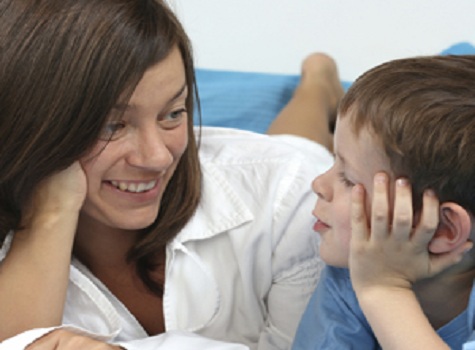Language Development Relies on Conversation & Reading with Kids
The importance of reading with kids is undeniable, but what about conversing with them? Picture this: You come home from your banking job and begin talking with your child about the problems with PPI mis-selling and how banks are supposed to be paying out, but are instead rejecting claims that are later approved by the FOS in droves. The only problem? Your youngster is just 3 months old and instead of responding with a few lines about the Ombudsman’s FOS complaint time limits, he’s just thrown Cheerios at you. Despite the fact that your 3-month-old infant is currently incapable of grasping the intricacies of loan insurance scandals, speaking with him and giving him the opportunity to respond well may offer key benefits for his speech and language development, according to a study from researchers at UCLA. But do try to stick to conversations that he can participate in.
The Research on Adult-Child Conversations
The research was published in the July, 2009 issue of Pediatrics, the journal of the American Academy of Pediatrics. Researchers assessed 275 families with children ages 0 – 4. For each child, the researchers examined exposure levels to television, speech from other children, and speech from adults. Exposure levels were measured using the LENA System, a small language recorder. The LENA System was designed specifically for use by speech-language pathologists (SLPs), researchers, and medical professionals. It can also be helpful for SLPs who need to collect language samples from children. The LENA System allowed the UCLA researchers a comprehensive view into the typical language of the study participants’ environments.
The Researchers’ Conclusions
According to the results of the research, TV viewing had neither a negative nor a positive impact on the children’s language development. Adult monologues (one-sided conversations or monologic reading with kids) had somewhat of a positive impact on language development. However, the greatest benefit to the child came from back-and-forth adult-child conversations. This type of language exposure was about six times as effective at facilitating language development as compared to mere monologues. The lead researcher on the team, Dr. Frederick J. Zimmerman of the UCLA School of Public Health, said, “Although sound advice, (monologues and reading with kids out loud) may not place enough emphasis on (the) children’s role in language-based exchanges and the importance of getting children to speak as much as possible.”
The Art of Conversation: A Key Speech Therapy Technique
This research supports a key facet of speech therapy: that providing the child with a language-rich environment is critical for speech and language development. Your child’s speech therapist has probably already told you that one great at-home speech therapy technique is simply to talk to your child as much as possible while modeling proper speech patterns. This study also highlights the necessity of encouraging back-and-forth conversations. Talk to your child’s SLP about techniques for encouraging vocalizations, taking your child’s specific speech disorder into account.
Your little one might be more apt to respond to questions rather than to initiate conversations, for example. Provide opportunities for him to respond in a “Yes” or “No” manner, or by providing choices. For example, ask him, “Do you want to wear the yellow shirt today or the white shirt?” If your child simply points to the yellow shirt without verbalizing his choice, say the word “yellow” and encourage him to copy you.
And remember that despite the importance of conversation, reading with kids is also critical and should not be neglected on account of the study results. Literacy is a cornerstone of your child’s success, both in school and after graduation. Just like many parents set aside a few minutes each day for articulation practice with Speech Buddies, for example, set aside a regular time for reading with kids each day.




